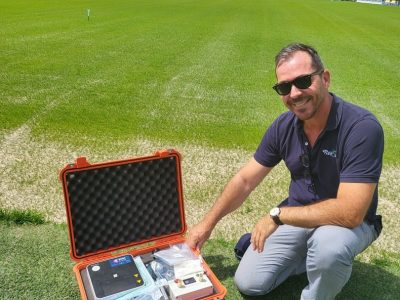Biopesticides represent an ecological and sustainable alternative to traditional chemical pesticides, playing a crucial role in integrated pest management. We will now take a closer look at their definition, applications and technological advances that place them at the forefront of crop protection.
Definition and classification
Biopesticides are commercial preparations of animal, plant, biochemical (pheromones, plant extracts, etc.) or microbial (bacteria, fungi, viruses, yeasts) originbiotechnology products, i.e. biotechnological products of living organisms or their metabolites naturally occurring in nature. They must be authorised beforehand and registered in the Official Register of Plant Protection Products of the Directorate-General for Agricultural Production Health.
Categorisation of biopesticides
The categorisation of biopesticides can be made according to their origin, including microbial, plant-derived, biochemical and insect growth regulators. This classification helps in the identification of specific products for targeted applications. They can be classified according to their origin as follows:
- Microbes:
- Bacteria: Example, Bacillus thuringiensis (Bt), which produces specific toxins against insects.
- Fungi: Like Trichoderma spp.which controls plant diseases through competition for nutrients and space.
- Viruses: Nuclear polyhedrosis virus (NPV), which infects and kills specific insects.
- Yeasts and other micro-organisms: Beneficial for their antagonistic action against pathogens.
- Biochemists:
- Pheromones: Used for sexual confusion of pests or their attraction to traps.
- Plant extracts: They include alkaloids, terpenoids and other compounds with insecticidal, fungicidal or herbicidal activity.
- Plant derivatives:
- Natural pyrethrins: Extracted from Chrysanthemum cinerariifoliumact as neurotoxins in insects.
- Essential oils: With insecticidal, fungicidal and repellent properties, extracted from various plants.
- Insect growth regulators (IGRs):
- Hormone analogues: Substances that interfere with insect development and reproduction, such as chitin synthesis inhibitors.
- Biological control agents:
- Natural enemies: It includes the release of predators, parasitoids and pest-specific pathogens for biological control.
Challenges in implementation
Despite its laboratory-proven efficacy, field application of biopesticides faces challenges due to variability in environmental conditions and biological diversity, which can affect their effectiveness. It is crucial, therefore, to integrate them into an integrated pest managementconsidering interactions with the ecosystem.
Advances in bioinsecticides
In the field of bioinsecticides, the biotech industry is investing in the development of RNAi-based preparations. (RNA interference), a technology that blocks the function of messenger RNA in target insects, preventing the production of proteins essential for their survival. This technology, known for its application in SARS-CoV-2 vaccines, promises to be a revolutionary tool in pest management.
New products resulting from advances in messenger RNA molecule blocking technology are likely to be the key new tools in the agronomic management.
RNAi technology in crop protection
RNAi-based bio-insecticides represent a highly specific and low environmental impact strategy, differing significantly from conventional methods in terms of accuracy and safety.
History and evolution of biopesticides
The use of biopesticides started in 1920 with Bacillus thuringiensis (Bt).a bacterium that produces insecticidal proteins. Because of its specificity and low environmental impact, Bt-based products are market leaders in biological insecticides, demonstrating the ability of these technologies to offer sustainable and effective pest management solutions.
Soil microbiome: the natural defence
Understanding the soil microbiome is essential for designing effective natural defence strategies on greens, tees or football pitches. In-depth knowledge of natural defence mechanisms allows the development of biological management tactics tailored to the specific needs of each environment, enhancing soil health and crop resilience.
Specialised consultancy for biological control
Specialised consultancyThe use of biopesticides, such as that offered by Tiloom, is essential to tailor these innovative biological control strategies to the specific needs of each case, maximising the efficacy of biopesticides within an integrated pest management approach.
With the growing need for sustainable agricultural production methods, biopesticides are presented as essential tools in the search for a balance between crop protection and environmental conservation. Ongoing research and development of new technologies promise to further expand its potential, offering innovative solutions to the challenges of modern agriculture.
It is also important to know what are the natural defence mechanisms of our greens, tees or football pitches in order to design the best natural defence, which can be determined through knowledge of the soil microbiome. You can visit consult with Tiloom so that we can inform you of these new strategies for your biological warfare.








